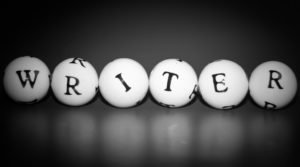
When I first started writing, I couldn’t even call myself a writer. I had been NOT writing for seven years before I joined a silent writing program that I went to once a week to sit down and scrawl out a mess of pages that seemed to be all over the place, and which I had no hope of ever turning into anything good.
The other people there, in my eyes, were real writers. They had plans. They were finishing their memoirs, looking for agents, querying, seeking critique and feedback, swapping manuscripts. Me . . . I was just off by myself in the corner, too shy to talk to the group and too terrified to show anyone the pages I worked on so slowly and tortuously. Writing was hard for me, and it didn’t seem to be that hard for anyone else. I lived in constant doubt that this observation of mine proved I wasn’t cut out to be a writer.
Well, I stuck with it regardless. I kept writing. I finished my first autofiction book and started writing another. I revised and revised and revised both books until I never wanted to see them again. I started a blog about writing and I started coaching writers. All of this happened over a period of years, and all of it happened slowly. I took one little tiny step, and then I took another. And the entire time I was still filled with self-doubt and worry.
As I got more clients, I met more writers who were, to me, “established.” They had agents and book deals, social media followings and successful careers. But instead of this showing me that I had made the right decision in choosing the writing life, it only filled me with more doubt. These established writers still struggled with making enough income to support themselves or their families. Sometimes they had an agent, but their book didn’t sell. Or sometimes they got a book published, but then it didn’t do very well. And all along the way they had to negotiate changes to their manuscripts, learning how to market themselves and their work, and self-doubt of their own. Because that was another thing I saw clearly after all these years had passed, every writer had self-doubt. Every single one. It wasn’t just me.
When I first started out writing, I really thought that someday I would reach some promised land. Someday, if I was lucky and worked hard enough, I would pass through some magic gate and Stephen King and J.K. Rowling would greet me on the other side and I would feel different than I ever had before. I would feel confident in my work, secure in my income, and invincible when it came to criticism. For a while, the dream of getting an agent was the outlet for this fantasy. After I decided to go indie, it was hitting the high numbers on Amazon. The dreams and the fantasies shifted around and changed according to my own personal growth and development, but they were always there. I was always convinced that I just had to reach some sort of “goal” in the future, and then all the things I struggled with as a writer would disappear.
Well, I’ve been writing for almost fifteen years now. I have five books published and a successful coaching practice. I teach classes on writing and I know hundreds and hundreds of writers. And I still feel like I haven’t passed through that magic gate. In fact, I see now that the magic gate doesn’t really exist, it never did. I might be writing for the next fifty years, until I’m an old woman in my nineties, with thirty published books, and I will probably still feel self-doubt. I will probably still feel like my first drafts are awful, and compare myself to other writers, and cringe when one of my non-writer friends says, “Wow, you’re still working on that novel?”
I see now that this is the writer’s life. It’s hard. And it’s hard for every writer, in different ways. But all the reasons we use to beat ourselves up and convince ourselves that maybe we’re not good enough to call ourselves a writer, actually don’t matter. It’s okay if we’re slow. It’s okay if we’re shy about our work and we have a lot of trouble hearing criticism. It’s okay if our first drafts are super confusing, incomplete, or just downright bad.
The traits that we need to survive the writing life are not speed, bulletproof confidence, or genius skill. What we actually need in order to make it as a writer are patience, self-acceptance, humility, perseverance, and a certain level of comfort with solitude and independence. These are the traits that come naturally to most writers, but we tend to underestimate their worth because they don’t sound very glamorous. But, once you’ve been in the writing life for any prolonged period of time, you come to find out that the writing life actually isn’t all that glamorous either.
So, if you’ve been beating yourself up for not being a “good enough” writer, or you’re still waiting to make it through the magic gate, just know that you’re okay where you are right now. You may only have written the first page of your first book and you’ve been stuck there for six months. You’re still okay. You’re still a writer.
Just remember this: Most of the real work of being a writer has nothing to do with how many words you produce or how good they are. It’s how much work you do inside, and how willing you are to be brave, even when you feel terrified.
This post originally appeared on Lauren’s blog on March 7, 2020.

Share this post with your friends.


This is an encouraging post. I love reading stories of a journey.